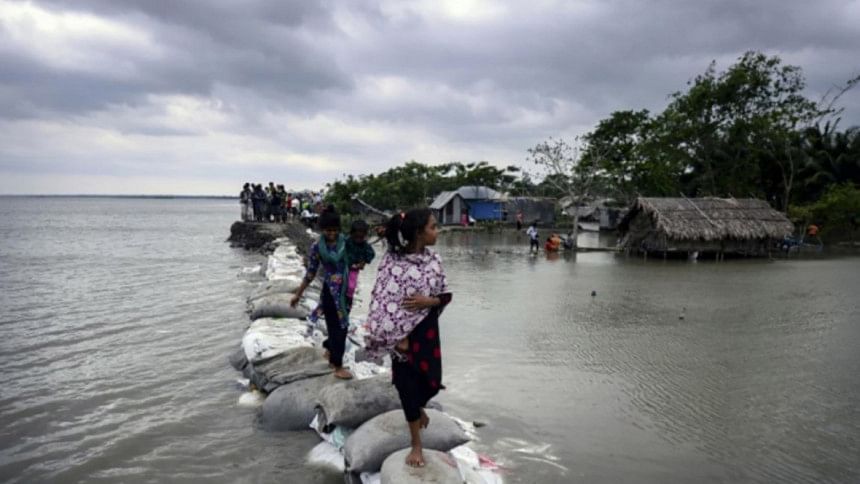The climate crisis is a humanitarian crisis, for women and girls in particular

As we mark the World Humanitarian Day today, we need to take urgent action to engage in climate adaptation, build climate resilience and prepare all the better for the escalating disasters, displacement and cycles of vulnerability that the climate crisis is creating—a crisis that is proving particularly devastating for the health and wellbeing of women and girls.
We know that 80 percent of disaster-related displacements worldwide have occurred in the Asia-Pacific region over the past decade. We also know that women and girls make up more than half of the displaced population globally. The intensification of extreme weather is also creating a crisis for sexual and reproductive health and rights, and for gender-based violence. There is no doubt that the climate crisis is gendered, and the evidence is increasingly coming to bear.
Globally, there were 300 extreme weather events triggered by natural hazards in 2019. This is six times the number of disasters since the 1970s. In 2018, climate and weather-related disasters caused 108 million people to need life-saving assistance, and we can expect this number to continue to increase.
The climate crisis, now compounded as well by the devastation of the Covid-19 pandemic, is disrupting the positive trajectory of upholding human rights and achieving the Sustainable Development Goals, including Goal 3 on good health and wellbeing and Goal 5 on gender equality.
In Asia and the Pacific, a region already reeling under the climate crisis, strategically investing in resilience-building at the national, institutional, community and individual levels is critical to achieve sustainable development, enable equal access to services and realise the rights for women and young people of all backgrounds.
Governments must commit to including women and young people of diverse backgrounds in discussions on climate change and allocate sufficient budget to carry forward the work. Engaging and empowering women and young people in climate action is a prerequisite for more just, equitable, sustainable and climate-resilient societies.
Civil society organisations have a key role to play in sharing their skills and knowledge with governments and in shaping gender-responsive and inclusive climate policies. They must be empowered with the resources and opportunities they need to engage with governments to build resilience, boost preparedness and to cope with the challenges coming ahead speedily.
Beyond the network of committed government and civil society leaders, UNFPA brings decades of experience, innovations and best practice to the discussion on climate change. Lessons about how to use technology to engage young people, and key learnings about the role women and young people play in climate action and humanitarian response will help ensure sustainable and inclusive outcomes through localised action.
In the Pacific, for example, UNFPA is supporting young people's leadership in climate action to better safeguard the future for the youth of today. In the Maldives, UNFPA is working with women to voice issues that matter to them, weaving gender equality within the fabric of climate policy. And in Bangladesh, UNFPA supports national disaster preparedness efforts by advocating for a gender-inclusive and transformative approach, including ensuring the presence of female volunteers on the frontline.
The lessons we continue to learn from the Covid-19 crisis demonstrate what is possible when we all work together. The world has developed medical solutions like vaccines in record time that have saved millions of lives. We have seen the power of collaboration for the global good. We have also seen the inequities caused by the significant gaps that persist in resource acquisition and allocation between nations, as well as the damaging impacts of unilateral, non-collaborative action. These lessons—reflecting both challenges and opportunities—can also be applied to tackling the climate crisis.
This is truly a transformational time for people on the front lines. Women, men and young people of all backgrounds involved in shaping climate policies, strengthening preparedness or responding to disasters save lives and improve the health, protection and wellbeing of people living the reality of climate change.
Let us use the momentum for reimagining and innovation to better handle the extreme events that lie ahead together—benefiting generations to come.
Björn Andersson is the Asia-Pacific Regional Director for the United Nations Population Fund (UNFPA), the UN's sexual and reproductive health agency.

 For all latest news, follow The Daily Star's Google News channel.
For all latest news, follow The Daily Star's Google News channel. 



Comments